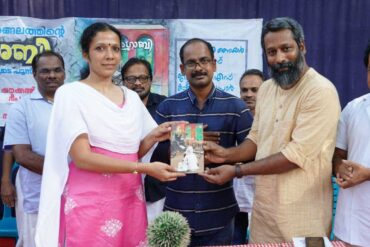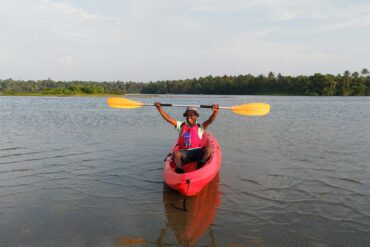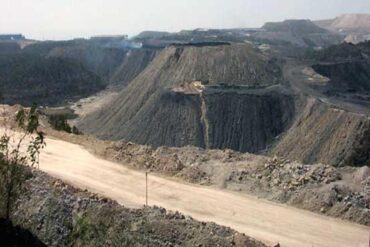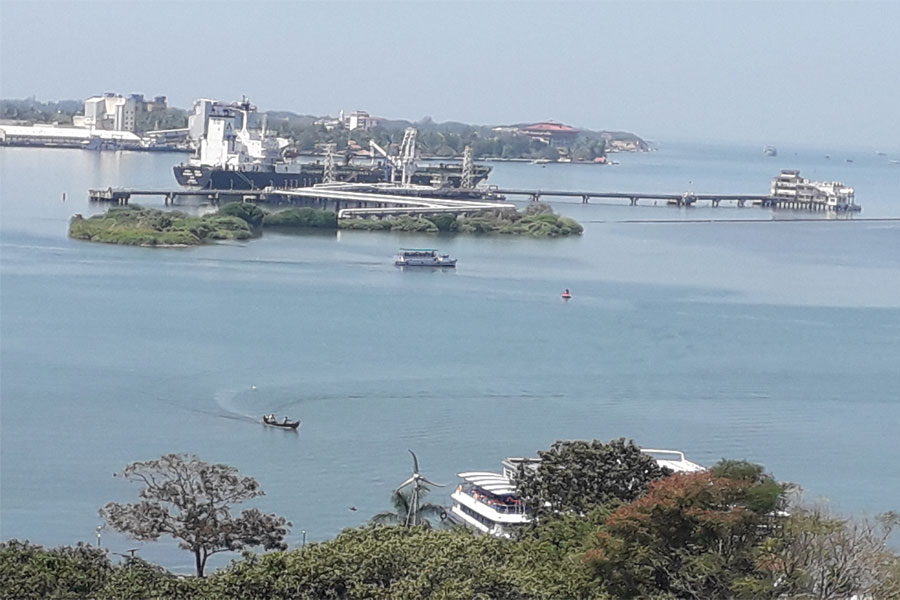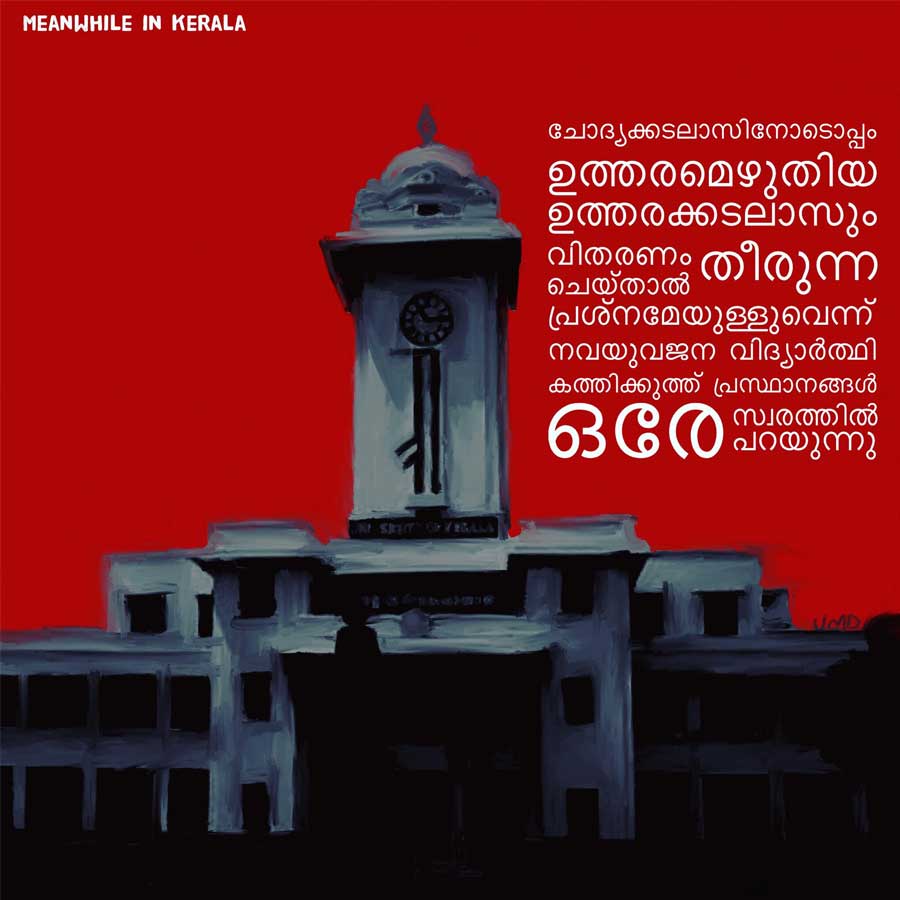Climate change—and sea-level rise—is going to seriously impact the Kochi urban region as half of it lies on or below the mean sea level. It becomes imperative that climate change and its consequences are taken up as an urgent urban governance agenda. This needs special attention and should be addressed through scientific planning and policies.
It is important to device resilience and mitigation strategies to effectively address this critical issue. To frame the right policies, we need to study the problems faced by the city and their short-term, medium-term and long-term repercussions on land and people. The major climate change threats to Kochi include intermittent precipitation, increase in temperature and sea-level rise.
Erratic rainfall pattern has been reflected in the form of short-duration high-intensity rainfall. In the month of August 2019, an all-time high rainfall of 820 mm was recorded in Kochi surpassing the previous record of 783.5 mm in the month of August 2014. In the month of July 2018, rainfall of 231.8 mm was recorded in a short duration of 24 hours and this has been the highest rainfall recorded in a day, in the recent past. Last month, on October 21, heavy rains lashed across the city bringing normal life to a standstill. On this particular day, the rainfall recorded was 197.6 mm in a day and the same is the second-highest rainfall figure for Kochi.
The constantly changing rainfall pattern has resulted in uncontrolled flooding in the city since the storm water is unable to permeate through the soil and as a result, the storm water runoff causes acute flooding. Percolation of water into the soil seldom happens in such situations, thus negatively affecting ground water recharge and the ground water table.
The most important mitigation strategy in this regard is to revamp all our canal systems by bringing them back to their original size, shape and width and ensuring their natural flow. Over a period of time our canals have become mere drains due to heavy and mindless encroachment and have been reduced to waste dumps. The immediate task here is to remove all encroachments hitherto unnoticed on the banks of the canals and also to take strict measures so as to prevent further polluting of canals, especially discharging of wastewater into them.
Rising mercury level has become a serious concern and for the first time, in the recent years, we have had heat waves and sunstrokes reported from Kochi. The phenomenon of ‘Urban heat island’ has become a reality, a visible impact of climate change. Heat intensity in the city is between moderate-to-high during winter and rainy seasons. However, it is higher in the summer months and this temperature rise has resulted in over consumption and, heavy loss of water which eventually would lead to serious water crisis. High intensity temperature has been recorded in areas where high-rise buildings comprising of 10 to 24 meters are situated in a cluster. Zero-Carbon Buildings can be the answer to this problem.
Coming back to the main issue, recent studies have shown that there has been a sea-level rise along the Kochi coastal line by 1.8 mm every year and the net sea-level of coastal Kochi would rise by 87.5 mm over the next 50 years or so. In Kochi, the constantly shifting coastline is another phenomenon associated with climate change. In such a scenario, most parts of the city would be inundated—a grave concern that would threaten the very existence of the city.
All these factors can make Kochi an uninhabitable place in the near future. It is high time that we got into a ‘climate strike’ mode and took climate change mitigation as a serious agenda in our scheme of things. In a nutshell, the most important element in mitigation strategy would be to take recourse to a more sustainable way of living and for this, we need to educate and build the collective conscious of our society.
Transportation is one area that needs to be addressed at the earliest as far as climate resilience is concerned. A recent study found out that in Kochi, the transport sector alone discharges about 7,49,756 tonnes of CO2 in an year, which is really an alarming figure. Efficient public transport system, promoting car-pooling, cycling and walking are some of the important steps that we ought to take to address this growing concern in the transport sector.
Energy sector is another serious contributor to the changing climate of Kochi and the hydroelectric power used emits 0.13 kg of CO2 per KW consumed. It is high time we switched over to non-conventional and renewable energy sources such as solar power, wind energy and biogas. Reducing energy use and increasing energy efficiency through ‘energy audit’ are the important steps to be adopted immediately.
Improper management and open dumping of waste contributes significantly towards climate change too. Practice of source segregation of waste into biodegradable, non-biodegradable and inert waste should be strictly adhered to and this will help in the proper disposal and management of each category of waste. The biodegradable waste can be composted within the households to reduce waste. The recyclable materials such as glass, metals and plastics ought to be recycled and reused. Not many are aware of the fact that solid and liquid waste happen to be vital factors triggering climate change.
Potable water would be the first casualty in a changing climate scenario and upgrading and modernizing the water supply system, promoting rainwater harvesting, minimizing water usage along with reuse of water and water leak detection are the key measures in this regard. Kochi has already prepared a water policy, a first in India initiated by a local self-government, with the support of SCMS Water Institute, and it is time we strictly followed the recommendations from this policy document.
It is important that the city also develops an integrated water management plan. A comprehensive and integrated storm water drainage management system should be brought into practice to address various issues pertaining to flooding in the city. Scientific disposal of waste water needs to be given top priority. The city must have a modern sewage system that can take care of every drop of waste water.
An oft-used concept in the diction of climate change is ‘circular economy’—based on eliminating waste by continued use of resources. Circular economy proposes minimizing production by maximizing use and reuse of products. The basic tenets of circular economy are keeping materials in use for longer periods on the basis of clear design and proper technology. Circular economy mode will help us in building climate resilience without comprising on economic opportunities.
Kochi generates close to 100 tons of non-biodegradable waste daily, and it is found out that less than five percentage of it is recyclable and reusable, posing a huge challenge to our circular economy concept. Nevertheless, we should work to bring sectors like the electronic industry, construction industry, automobile industry, textile industry and all such critical industries into the circular economy mode.
Many cities in the developed world have adopted nature-based solutions to fight the negative effects of climate change. Conservation of existing bio-diversity is a major step in reducing carbon footprint. Making nature an important part of urban life is the first action solicited in this regard and planting more trees, improving the upkeep of open spaces, conserving sensitive ecological hotspots within the city and organic urban farming are some of the quintessential features of nature-based solutions.
In this regard, Kochi has initiated meaningful projects like the ‘Interact-Bio’ with the support of the International Centre for Local Environmental Initiatives and ‘Cities4Forest’ with assistance from the World Resource Institute—we need many more such projects at the community level to fight climate change. Protecting our most precious wealth, the Vembanad Lake, should be an important agenda in this regard. No further reclamation or encroachment should be allowed and a proper conservation and management plan should be devised for the protection of Vembanad Lake, the life line of Kochi. Vembanad Lake acts both as the water and the carbon sink for Kochi and any further harm to the lake will endanger our life here.
Adapting and shifting to construction technology congenial to local environment and using more of locally-available materials for construction are other major steps towards attaining sustainability. In the last sixty years of urbanization, Kochi has irrevocably lost one of the most precious elements of life: Water. Five decades ago, potable water was available in every nook and corner and nobody imagined that potable ground water storage would be depleted at such an alarming pace. It is unscientific planning and development that have caused it.
Likewise, we are losing out on another pivotal aspect of sustenance: clean air. We must take serious measures to prevent any deterioration of air quality in Kochi. Though the overall situation appears to be very precarious, there is still time and we need to exhibit genuine political will, bureaucratic commitment and a civil society that is willing to be the ‘change you want to see’ to turn things around and make Kochi a live-able and modern urban space.
Pic credit: Minu Ittyipe

